 Be Inspired Blog - Arizona
Be Inspired Blog - Arizona

16 Weed And Pest Control Tips For Tasty Gardens!
Edible gardening is a growing trend (pun intended) that many folks are eager to try, but it's important to consider a few things before you jump in. Vegetable gardening can reduce stress, and provide you and your loved ones with delicious, nutrient-rich foods! To ensure your success, we've compiled these weed and pest control tips!
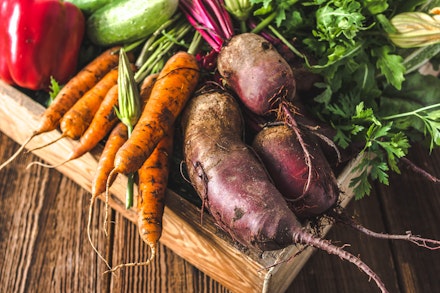
To ensure your harvest is both successful and safe, it's important to use non-toxic formulas when combating weeds, bugs, and other nasties. After all, you and your family are going to be eating the things you harvest from your garden, so you’ll want them to be as healthy and tasty as possible!
Thankfully, there are so many simple and natural solutions to weed and pest control that are entirely food-safe, so you can enjoy all the delicious food you've grown in your garden while keeping away the hungry critters. Here are the best weed and pest control tips in Arizona for a veggie garden that's bursting with flavorful food.
10 Vegetable Garden Pest Control Tips
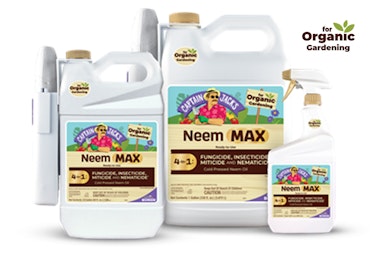
Many first-timers are unsure how to eliminate pests from their vegetable gardens without resorting to toxic sprays. These amazing pest control tips will be your secret weapons against unwanted invaders for a garden full of healthy, ripe produce that hasn't been coated with chemicals or munched on by mice.
Neem Max - Captain Jack’s Neem Max Ready-to-Spray is a 4-in-1 organic gardening solution that acts as an insecticide, fungicide, miticide, and nematicide. Made with Cold Pressed Neem Oil, it controls pests at all life stages—including aphids, mites, and caterpillars—and prevents major fungal diseases on vegetables, fruits, ornamentals, and more. Always follow label instructions for safe and effective use.
Expert Tip: Make sure to spray the undersides of your plants' leaves, because that's where bugs hide most often!
Insecticidal Soap is another simple solution made from castile soap and water. Even though it's super gentle on our skin and totally harmless to humans and animals, drenching your plants with soap spray can instantly kill aphids, whiteflies, gnats, and all sorts of other annoying insects.
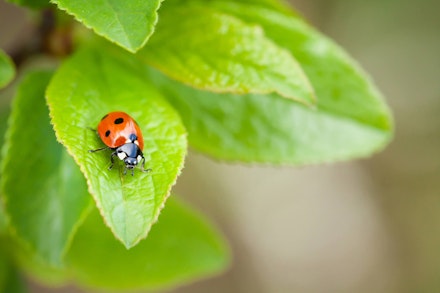
Beneficial Bugs like ladybugs can be purchased in a refrigerated box. The cold temperature eases them into a state of hibernation, so once they warm up and wake up, they're hungry and ready to kick some serious bug butt!
Beer Traps are just little saucers full of beer hidden around the garden, shaded by leaves. The beer attracts slugs and snails, who will plop themselves right into the plate so you can dispose of them easily.
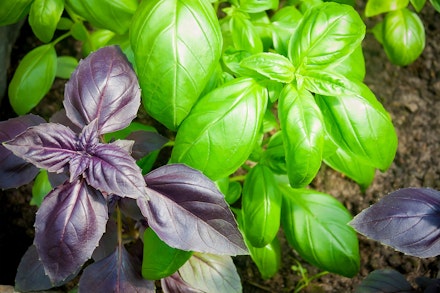
Pest Repelling Plants like marigold, basil, and lemongrass are effective at repelling pests with their potent scents. Even though they smell delightful to us, the bugs (and even the rabbits!) often can't stand them, so if you intersperse these plants with your vegetables, it should have a more effective defense against pests.
Eggshells have an abrasive texture when crumbled, so spreading them across the soil surface will help keep away the slugs and snails because it cuts their bodies. Other abrasive formulas like diatomaceous earth are quite popular and completely natural.

Chili Powder is amazing at keeping hungry squirrels and rabbits away from your produce. They can't handle the spice! Dilute some chili powder in water (some people add garlic as well) and coat your vegetables to make them less palatable for the local wildlife. Remember to give them a good rinse before eating, or your dinner might be a tad more picante than intended!
Blood and Bone Meal might make you a bit squeamish, but that's why it works! It makes rabbits and other rodents run for the hills because they can detect the scent and assume it's coming from a predator who has found a fresh kill. Mix blood and bone meal into the soil, as they make fantastic natural soil amendments, and your rabbit problem should resolve quickly.
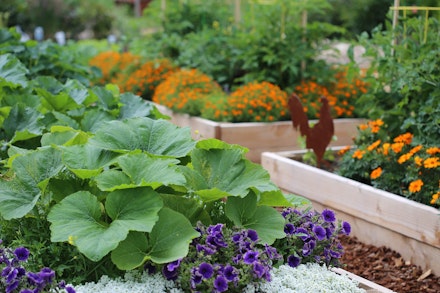
Nets and Cages are great physical barriers for keeping animals away as well. Just make sure you bury them deep into the soil so rabbits can't tunnel underneath!
Raised Garden Beds have long been considered one of the best ways to cultivate vegetable plants at home because you can monitor the soil conditions more closely, and it's less compacted than soil in the ground. However, since they're raised off the ground, it makes it much more difficult for small rodents to make their way in!
7 Vegetable Garden Weed Control Tips
Weeds are a nuisance, for sure, but you kinda have to admire their tenacity! To keep these unwanted, invasive plants from taking over your garden and hogging the valuable resources from the soil, follow these organic weed control tips.
Organic Pre-Emergent Herbicides are formulas that should be used early in spring before anything has started to sprout. Pre-emergents will stop weeds from germinating and developing. To learn more, check out our blog, What You Need to Know About Pre-Emergents.
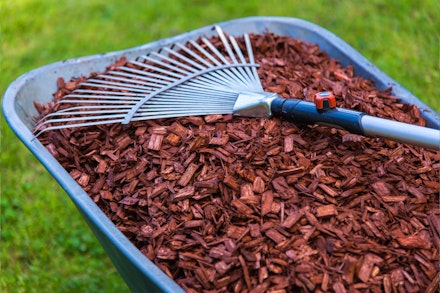
Mulch is a layer of loose organic material, usually shredded bark or straw, which blocks the soil's surface from the sun. Mulch helps to stop weed seeds from germinating while also conserving moisture and regulating temperature for healthier plants overall!
Avoid DIY Salt-Based Concoctions that are often recommended by independent blogs online. While they may kill weeds, they also kill a lot of the healthy bacteria in your soil that's essential for your plants' health. Using these formulas will mean having to add tons of extra soil amendments to compensate for the damage.
Don't Let Weeds Drop Seeds! Get rid of your weeds as soon as you can, before they start to seed. If they are successful in releasing their seeds all over the garden, you'll have a much bigger weed problem next year.
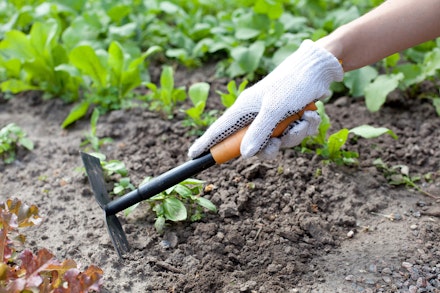
Hoeing vs. Hand Picking seems to confuse many gardeners, as they aren't sure which method is more effective. Truthfully, it isn't really a matter of effectiveness (they both work great!) but rather which method is more appropriate for the stage of growth your weeds are in. If your weeds haven't seeded, it's safe to use a hoe, but if they're starting to develop up top, you won't want to risk releasing them. Instead, lop off the tops of the weeds with a hand scythe or shears, and put the tops directly into a garbage bag to avoid spreading. Then pull the rest of the weed by hand. Remember to dispose of weed seeds in the garbage, not the compost!
Use Fast-Spreading Herbs to Fill Spaces
Delicious fragrant herbs like oregano are loved for many reasons. They're tasty, they're easy to grow, they spread quickly, and they even repel pests! Their quick-spreading habit makes them great filler plants for the garden, so you can take up all the real estate that the weeds have been eyeing.
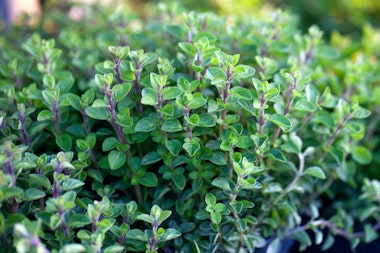
Cover Crops are like placeholder plants that fill up your garden space during the down season in winter (if you aren't growing any veggies at that time). These plants help fill up all the space so weeds can't take hold and sprout at the start of spring, but they also help deposit nutrients in the soil, keeping things healthy and balanced.
Ready to start your most amazing vegetable garden ever? SummerWinds has all the best seeds and starter plants, plus plenty of organic amendments to make your garden a resounding success. Visit us soon to see what's new!

